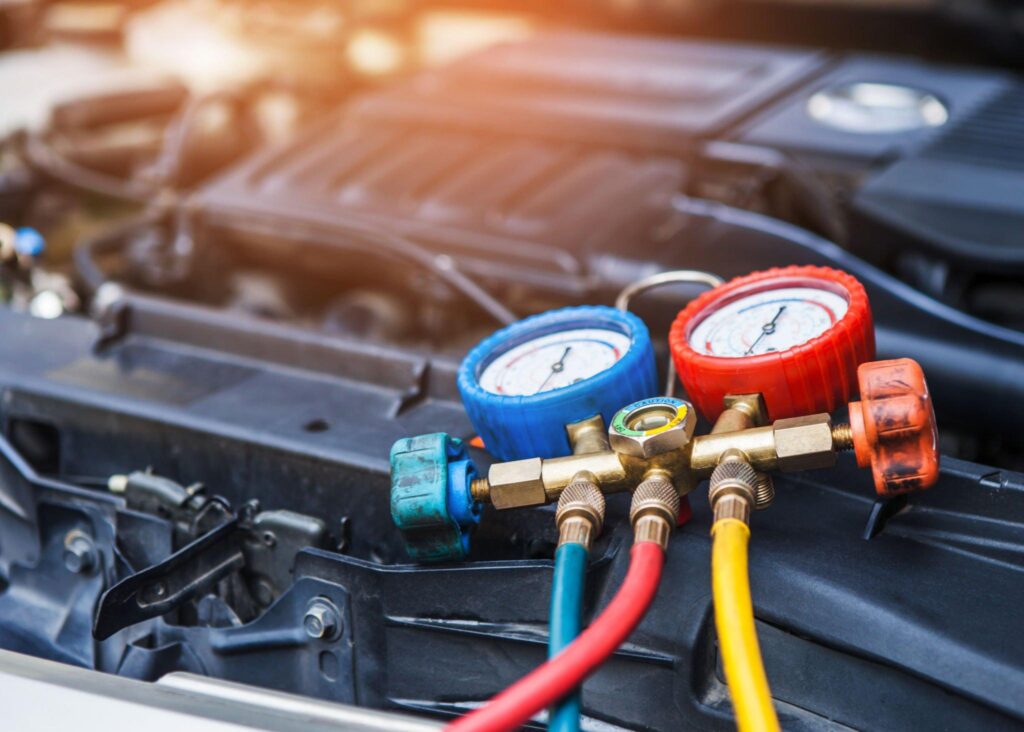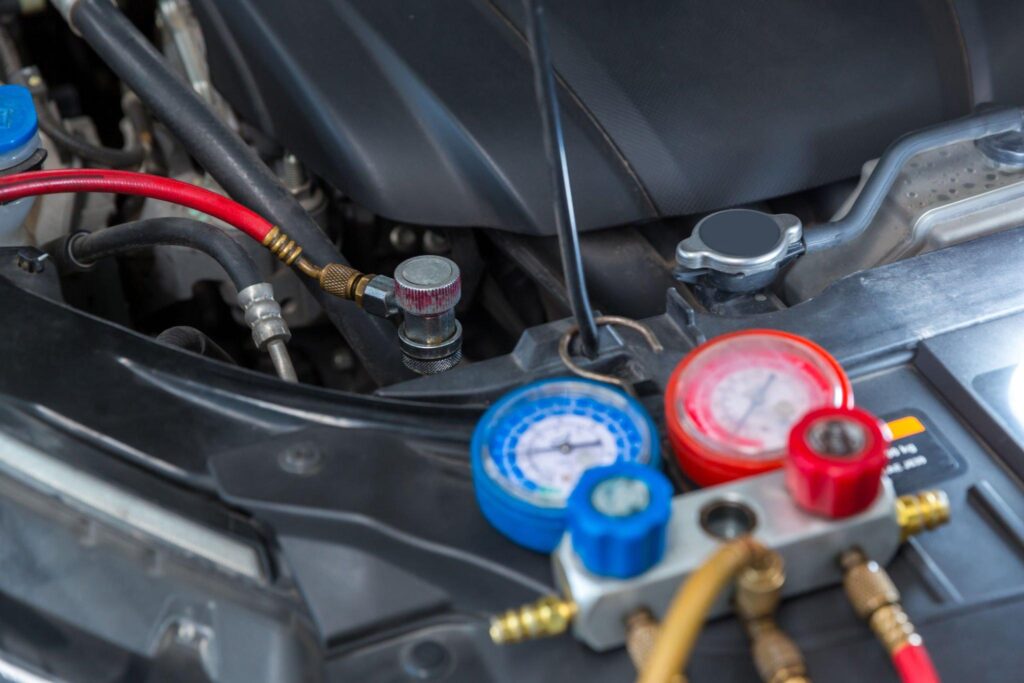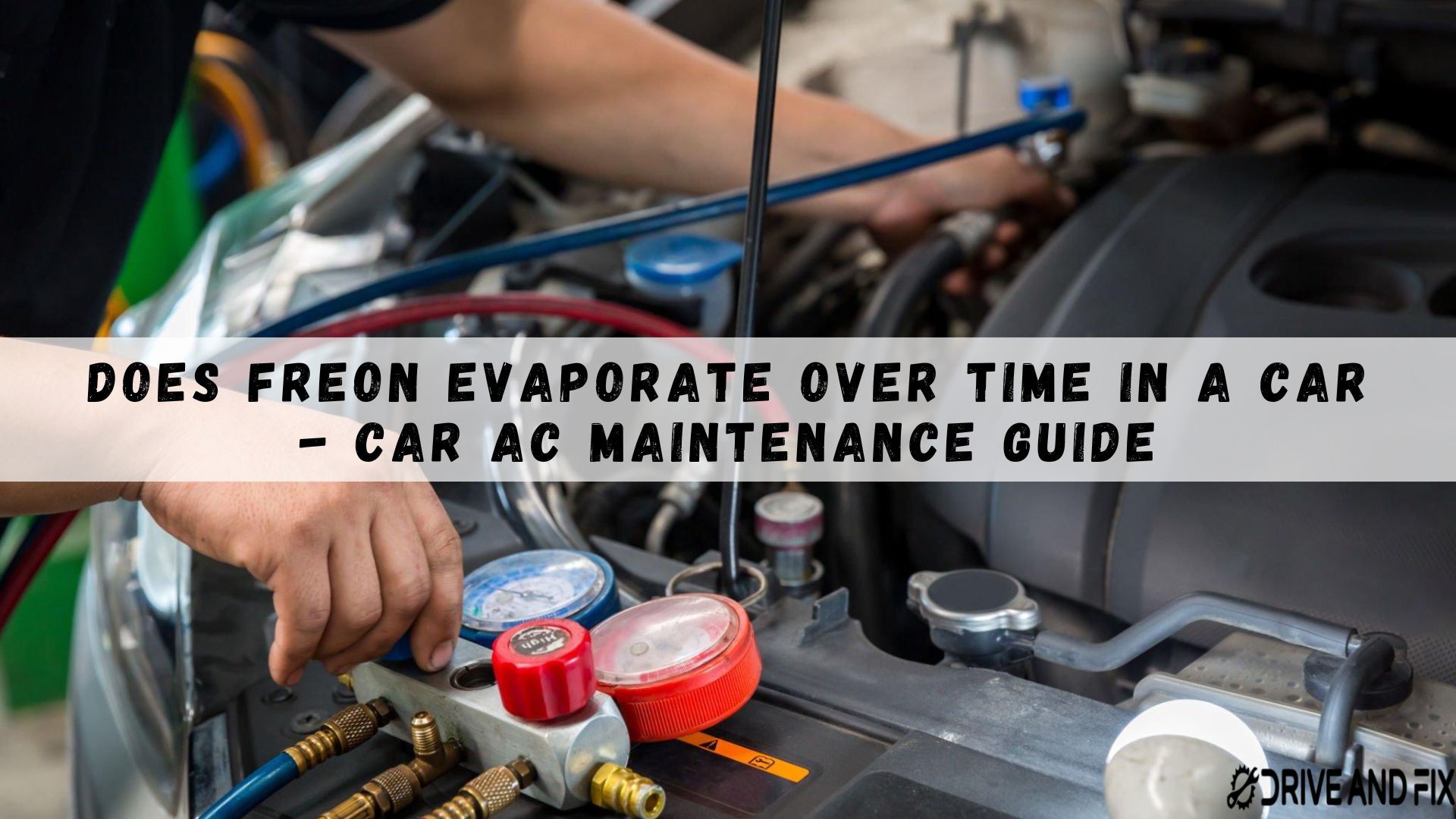The air conditioner in your car is your best friend when it comes to keeping you cool during those hot summer months. One of the important components of your AC is the refrigerant, also known as Freon or R-134a, which is responsible for absorbing and expelling heat from the air inside your car. But does freon evaporate over time in a car? And if so, what does that mean for your car’s AC system?
Read here as we dive into the science behind Freon, its role in keeping your car cool, and what to look out for to ensure your AC is running at its best. So, let’s explore this topic and understand how to maintain the perfect air conditioning in your car.
What is Freon?
Freon is a brand refrigerants commonly used in AC and refrigeration systems. The most well-known type of Freon is R-12, also known as dichlorodifluoromethane (CFC-12). It is a colorless, non-toxic, and non-flammable gas with a low boiling point, making it an ideal refrigerant.
Freon Properties
- Low boiling point: It has a boiling point of around -30 degrees Celsius, which allows it to evaporate and absorb heat from the air quickly.
- High thermal stability: It is a thermodynamic substance that absorbs heat when it evaporates and releases heat when it condenses.
- Non-toxic and non-flammable: Freon does not pose a health risk when handled properly and does not catch fire easily.
- Ozone-depleting properties: CFC-12 (R-12) is an ozone-depleting substance, and it was phased out under the Montreal Protocol, an international treaty designed to protect the ozone layer.
- Low global warming potential: R-134a (HFC-134a) is a commonly used alternative to R-12, which does not have ozone-depleting properties and has a low global warming potential.
Does Freon Evaporate Over Time in a Car?

Freon is a stable compound that does not break down or evaporate over time. That is one of the reasons why it is an ideal refrigerant for AC and refrigeration systems. It can withstand the average operating temperatures and pressures of an AC without breaking down or losing its ability to transfer heat.
However, this can leak out if there is a problem with the air condition, such as a leak in the hoses or a faulty compressor. Leakage can also happen due to other issues such as age, wear, and tear, or damage to the AC.
R-12 (CFC-12) is an ozone-depleting substance; its production and consumption were phased out under the Montreal Protocol. R-134a (HFC-134a) is a commonly used alternative to R-12, which does not have ozone-depleting properties and is considered a more environmentally friendly refrigerant.
Major Causes Of Freon Leakage
There are several causes of Freon leakage in car AC including:
- Hose leaks: The hoses that transport Freon in and out of the AC system can develop leaks over time due to age, wear, and tear, or exposure to the elements.
- Compressor failure: Compressor is the heart of the AC, and it can fail over time, leading to a loss of Freon.
- Loose connections: Connections between the various components of the system can become loose over time, allowing Freon to leak out.
- Accidents or damage: Freon leaks can also happen due to damage to the air condition, such as a collision or road debris puncturing the AC system.
- Natural wear and tear: Over time, the seals and gaskets that keep the Freon in the AC can lose their effectiveness, leading to leaks.
- Lack of maintenance: Regular maintenance is necessary to ensure the air condition is functioning correctly and that there are no leaks. If the AC is not serviced regularly, leaks can occur.
Maintaining Your Car’s AC with Freon – How to Check Freon Leakage

There are several ways to check for Freon leaks in a car’s AC:
- Listen for hissing or bubbling sounds: If you hear a hissing or bubbling noise from the air conditioner, it could signal a Freon leak.
- Check for visible leaks: Look for any signs of leakage, such as oil or Freon stains on the hoses or connections.
- Use a leak detector: There are specialized tools available, such as electronic leak detectors or UV dye injectors, that can help locate leaks in the air conditioner.
- Check the pressure: If the pressure is low, it could be a sign of a Freon leak. A technician can use a pressure gauge to check the system’s pressure and determine if there is a leak.
- Check the performance of AC: If the AC is not blowing cold air, it could signal a Freon leak. Low refrigerant levels can cause the AC to perform poorly.
You May Also Like: Why Car AC Stops Blowing Cold Air After A While -Troubleshooting Tips
Freon leak checks in a car’s AC should be done by a professional, as it can be dangerous to handle the refrigerant without proper training and equipment.
Steps to Recharge or Replace Freon in Your Car’s AC System
Recharging or replacing Freon in a car’s air conditioner is a task that a professional technician should do with the proper training and equipment. Here is a general overview of the process:
- Locate the low-pressure service port: The low-pressure service port is typically located near the compressor, where the Freon is added to theAC.
- Check the system’s pressure: Using a pressure gauge, check the pressure in the system to determine the amount of Freon that needs to be added.
- Evacuate the system: Before adding a new Freon, evacuate the system to remove any air or moisture that may be present.
- Add the new Freon: Add the new Freon to the AC through the low-pressure service port.
- Check for leaks: After adding the new Freon, check the Air conditioner for any leaks using special tools such as electronic leak detectors or UV dye injectors.
- Check the performance of the AC: Test the car AC to ensure that it is blowing cold air and that the pressure is at the proper level.
Final Thoughts
Maintaining your car’s AC with Freon ensures the AC runs efficiently and effectively. If the AC is low on Freon, it may also not cool the air, leading to a less comfortable driving experience. Freon Evaporate Over Time in a Car. A leak in the AC system can lead to its escaping, harming the environment. Regular maintenance, including checking and refilling the levels, prevents these issues and keeps your car’s AC running smoothly.
We encourage regular checks and preventive measures to maintain the health and longevity of your car’s AC. Regular servicing your car’s AC, you can catch any potential issues before they become major problems. In the long run, this will save both time and money. Avoiding regular checks and maintenance only causes damage to the AC system, which affects the vehicle’s performance.
Anyway, if you want to know about blown AC fuse car, learn more from – The Essential Guide to Blown AC Fuse In Car Symptoms
Our Popular Post:
Is it OK to Sit in Car with AC On? Here’s the Answer
Blown Fuse Car Won’t Start? Here’s What You Need to Know
Can I Apply Clear Coat the Next Day? The Ultimate Guide
What to Do When Your Battery Light Stays On After Key Pulled?


